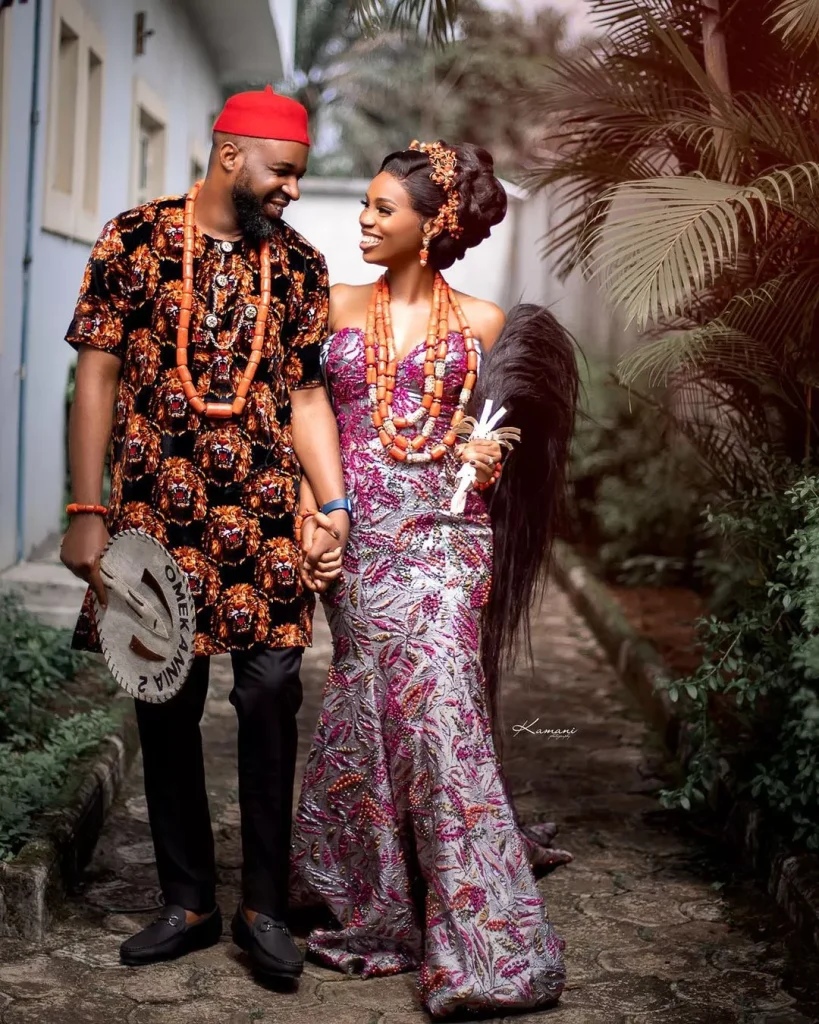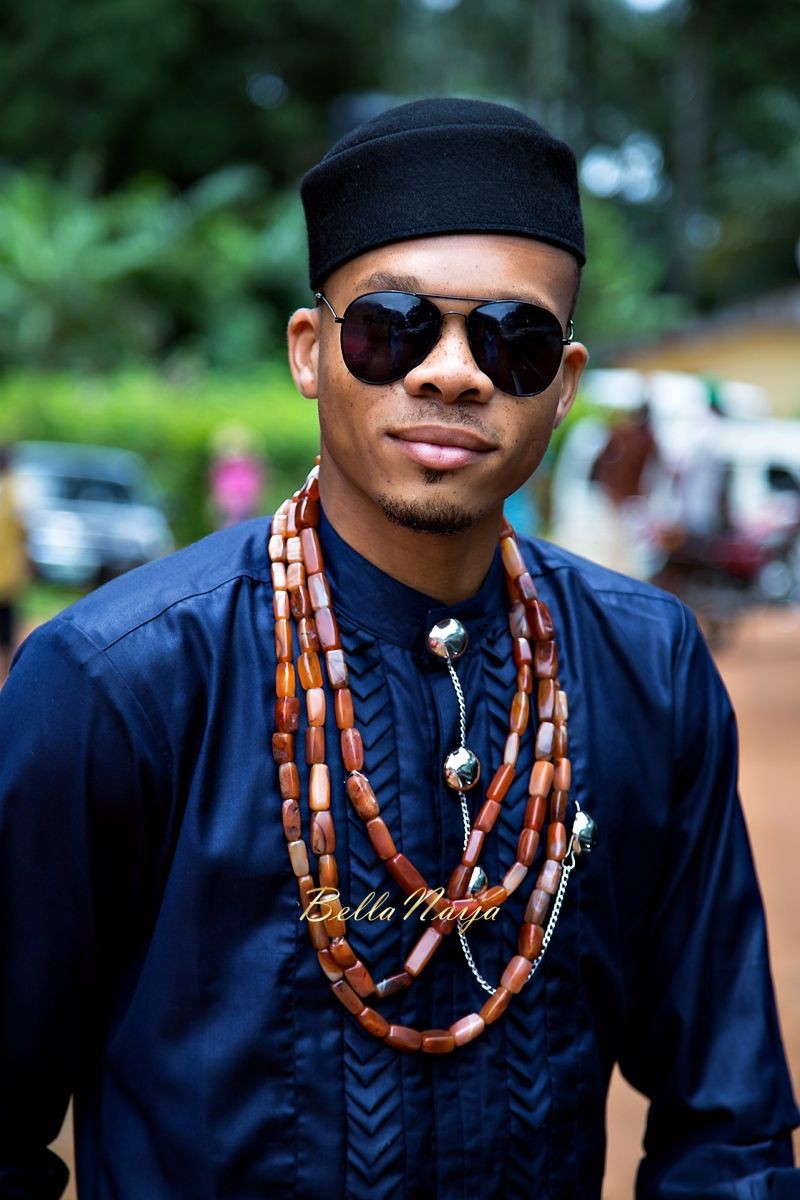When it comes to weddings, the Igbo people of Nigeria bring a vibrant flair that truly stands out. The male Igbo traditional wedding attire is more than just clothing—it's a symbol of pride, identity, and cultural heritage. If you're diving into the world of Igbo weddings or simply curious about the rich traditions behind them, you're in for a treat. Let’s break it down and explore what makes this attire so special.
Imagine walking into a ceremony where every detail is thoughtfully curated, from the music to the outfits. The groom's attire in an Igbo wedding is often the centerpiece of the celebration. It’s a reflection of his family’s status, his personal taste, and the deep-rooted customs of his community. This isn’t just about looking good; it’s about honoring tradition.
As we dive deeper into the world of male Igbo traditional wedding attire, you’ll discover the significance of each piece, the colors that hold meaning, and the stories behind the fabrics. Whether you're planning your own wedding or just fascinated by African culture, this article will give you the inside scoop on what makes Igbo weddings truly unforgettable.
Read also:Katie Sigmond Boyfriend 2024 The Latest Scoop On Her Love Life
Table of Contents
- The History of Igbo Traditional Attire
- Styles of Male Igbo Traditional Wedding Attire
- Importance of Fabrics and Colors
- Key Accessories for the Groom
- Cultural Significance of the Attire
- Modern Twist on Traditional Attire
- Budgeting for Your Wedding Attire
- Where to Shop for Authentic Attire
- Dos and Don’ts for Grooms
- Inspiration for Your Big Day
The History of Igbo Traditional Attire
Let’s rewind a bit and take a trip back in time. The Igbo people have a long history of crafting beautiful and meaningful garments. Traditional Igbo attire wasn’t always about weddings; it was a daily part of life, signifying one’s role in the community. For men, the attire included pieces like the “agbada,” a flowing robe, and “oge,” a hat that symbolized authority and respect.
Over the years, these garments evolved to include elements specifically designed for weddings. The modern male Igbo traditional wedding attire is a blend of historical significance and contemporary style. Each piece tells a story, whether it’s the intricate patterns on the fabric or the way the outfit is worn during the ceremony.
Evolution of Traditional Attire
The evolution of Igbo traditional attire is fascinating. Back in the day, materials like raffia and barkcloth were commonly used. As trade expanded, new fabrics like silk and brocade found their way into Igbo culture. Today, grooms can choose from a wide range of high-quality fabrics, each with its own unique texture and sheen.
One of the coolest things about Igbo traditional attire is how adaptable it is. While the core elements remain the same, modern grooms can add personal touches that make their outfits stand out. From embroidery to beadwork, the options are endless.
Styles of Male Igbo Traditional Wedding Attire
Now, let’s talk about the different styles you might see at an Igbo wedding. The groom’s outfit is typically made up of several key components, each with its own significance. Here’s a quick rundown:
- George Robe: A flowing robe made from George fabric, which is known for its vibrant colors and intricate patterns.
- Aso Oke Suit: A tailored suit crafted from Aso Oke, a handwoven fabric that’s highly prized in Nigerian culture.
- Agbada: A traditional robe that’s often adorned with embroidery and worn over a shirt and pants.
- Oge (Hat): A decorative hat that completes the look and adds a touch of elegance.
Each style has its own charm, and the choice often depends on personal preference and cultural expectations. Some grooms opt for a classic look, while others go for something more modern and daring.
Read also:Emmanuel Adebayor Net Worth A Deep Dive Into The Wealth Of A Football Legend
Tailoring and Customization
One of the best things about Igbo traditional attire is the ability to customize it to fit your personality. Tailors in Nigeria and beyond specialize in crafting bespoke outfits that are tailored to perfection. From choosing the right fabric to deciding on the perfect color palette, the possibilities are endless.
Don’t be afraid to experiment with different styles. You might find that combining elements from various traditions creates a look that’s truly unique. Just remember to keep the overall aesthetic cohesive and aligned with the theme of the wedding.
Importance of Fabrics and Colors
Fabrics play a crucial role in Igbo traditional wedding attire. The right fabric can elevate the entire look and make a statement. Some of the most popular fabrics used in Igbo attire include:
- George
- Aso Oke
- Ankara
- Satin
Each fabric has its own texture and feel, so it’s important to choose wisely based on the occasion and your personal comfort. Colors are equally important, as they often carry symbolic meanings. For example:
- Red: Represents vitality and energy.
- Blue: Symbolizes peace and harmony.
- Gold: Signifies wealth and prosperity.
When selecting colors for your wedding attire, consider the overall theme of the event and the cultural significance of each hue. You want to make sure your outfit complements the bride’s attire while also standing out on its own.
Symbolism in Colors
Colors in Igbo culture aren’t just about aesthetics; they carry deep symbolic meanings. For instance, the color green is often associated with growth and renewal, making it a popular choice for weddings. Similarly, white is seen as a symbol of purity and is frequently used in traditional ceremonies.
It’s worth noting that some colors may have different meanings depending on the region or community. If you’re unsure about which colors to choose, consult with a local expert or elder who can provide guidance based on cultural norms.
Key Accessories for the Groom
Accessories can make or break an outfit, and the same holds true for male Igbo traditional wedding attire. Here are some essential accessories that every groom should consider:
- Oge (Hat): A decorative hat that adds a touch of elegance to the overall look.
- Staff or Cane: Often carried by the groom as a symbol of authority and leadership.
- Beaded Necklaces: These add a pop of color and can be customized with meaningful symbols.
- Belt or Sash: A colorful belt or sash can tie the entire outfit together.
When choosing accessories, it’s important to strike a balance between tradition and personal style. You don’t want to go overboard, but at the same time, you want to ensure that your outfit is complete and polished.
Choosing the Right Accessories
Selecting the right accessories can be a bit overwhelming, especially if you’re new to Igbo culture. Here are a few tips to help you make the right choices:
- Stick to high-quality materials that will stand the test of time.
- Coordinate your accessories with the colors and patterns in your outfit.
- Don’t be afraid to ask for advice from family members or friends who are familiar with Igbo traditions.
Remember, accessories are meant to enhance your outfit, not overshadow it. Keep it simple and let the fabrics and colors do the talking.
Cultural Significance of the Attire
The male Igbo traditional wedding attire is more than just a fashion statement; it’s a celebration of culture and heritage. Every piece of the outfit has a story to tell, whether it’s the fabric used or the way the garment is worn. By donning traditional attire, grooms are paying homage to their ancestors and honoring the traditions that have been passed down through generations.
Weddings are a time for families to come together and celebrate love and commitment. The groom’s attire plays a key role in setting the tone for the event and ensuring that the cultural significance of the occasion is not lost. It’s a reminder that even in modern times, traditions still hold immense value.
Traditions and Rituals
Igbo weddings are steeped in tradition, and the groom’s attire is just one aspect of the larger ceremony. From the exchange of vows to the sharing of kola nuts, every detail is carefully planned to reflect the values and beliefs of the Igbo people.
One of the most important rituals is the presentation of the groom’s attire to the bride’s family. This is a gesture of respect and a way of showing that the groom is prepared to take on the responsibilities of marriage. It’s a beautiful moment that highlights the importance of family and community in Igbo culture.
Modern Twist on Traditional Attire
While traditional Igbo wedding attire is steeped in history, modern grooms are finding ways to put their own spin on it. Whether it’s incorporating contemporary patterns or experimenting with bold colors, there’s no shortage of creativity when it comes to updating this classic look.
Some grooms are opting for fusion outfits that combine elements of Western and Igbo styles. This can include pairing a traditional robe with a tailored blazer or adding a modern twist to the accessories. The result is a look that’s both timeless and trendy.
Blending Tradition and Modernity
Blending tradition and modernity can be a delicate balance, but when done right, it can create a stunning effect. Here are a few tips for achieving the perfect fusion:
- Start with a classic base, such as a George robe or Aso Oke suit, and add modern elements like embroidery or beading.
- Experiment with unexpected color combinations that reflect your personal style while still respecting cultural norms.
- Consider working with a designer who specializes in fusion attire to create a truly unique look.
Remember, the goal is to honor tradition while also expressing your individuality. There’s no right or wrong way to do it, as long as you stay true to yourself and your cultural roots.
Budgeting for Your Wedding Attire
Planning a wedding can be expensive, and the groom’s attire is just one of the many costs to consider. That said, it’s important to allocate a reasonable budget for your traditional wedding outfit. Here are a few tips to help you stay within your means:
- Shop around for the best prices on fabrics and accessories.
- Consider renting certain pieces if buying them outright isn’t feasible.
- Work with a tailor who offers flexible payment plans or discounts for bulk orders.
Remember, you don’t have to break the bank to look good. With a little research and planning, you can find high-quality attire that fits your budget without compromising on style.
Saving Money Without Sacrificing Style
Saving money doesn’t mean sacrificing style. In fact, some of the most stunning outfits are the result of creative problem-solving and smart shopping. Here are a few additional tips to help you save money while still looking your best:
- Buy fabrics in bulk if you’re planning to make multiple outfits.
- Look for sales or discounts at local markets or online stores.
- Consider collaborating with other grooms to share costs for accessories or custom designs.
With a little creativity and resourcefulness, you can create a look that’s both stylish and budget-friendly.
Where to Shop for Authentic Attire
When it comes to shopping for authentic Igbo traditional wedding attire, there are plenty of options to choose from. Whether you prefer shopping locally or online, there are stores and designers who specialize in crafting high-quality outfits that honor the traditions of the Igbo people.
Some popular places to shop include:
- Local markets in Nigeria, such as the Onitsha Market or the Aba Market.
- Online stores like Jumia or Konga, which offer a wide range of fabrics and accessories.
- Custom tailors who can create bespoke outfits tailored to your specifications.
When shopping for traditional attire, it’s important to


